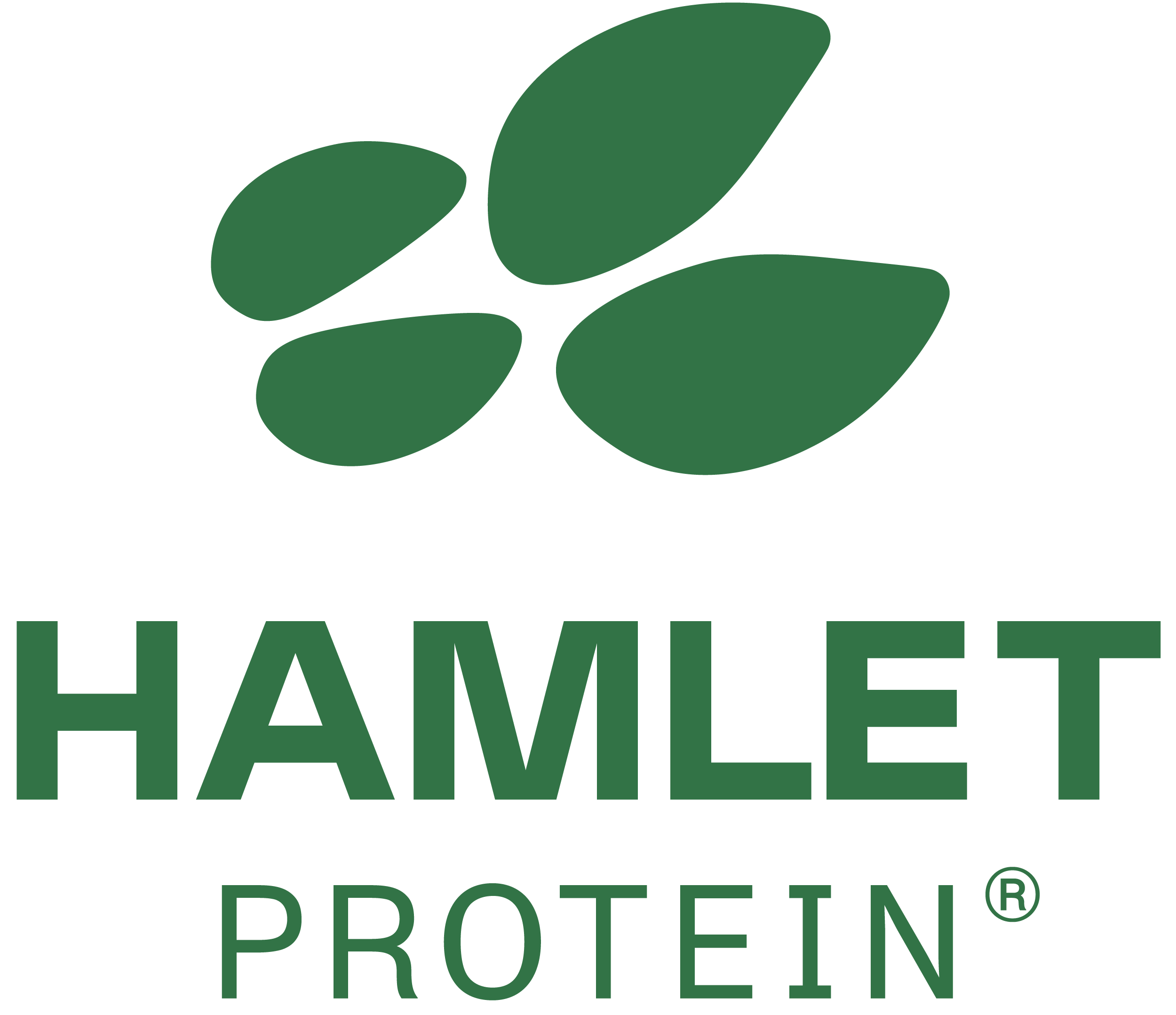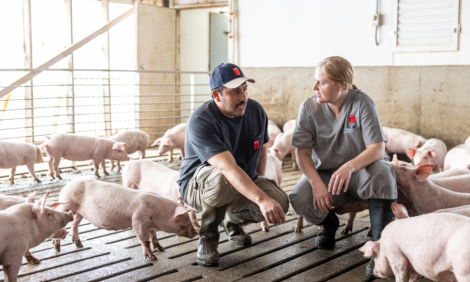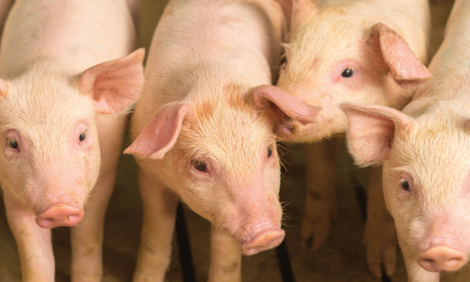



World Pork Expo: Hamlet Protein CEO says “Sustainability is no longer a nice-to-have”
CEO Erik Visser shares how Hamlet Protein’s LCA data will inform animal health solutions, reduce emissions and align with evolving green policies in key marketsErik Visser, CEO at Denmark-based Hamlet Protein, was recently interviewed by The Pig Site’s Sarah Mikesell at World Pork Expo in Des Moines, Iowa, USA, about their sustainability efforts.
What motivated Hamlet Protein to initiate a life cycle assessment (LCA) at this time, and what specific questions are you hoping it will answer?
Sustainability is becoming an increasingly essential element in our industry. It's no longer a nice-to-have; it's a must have. That's not only from our investor perspective but also from the market. They're very much from market to market. Some markets are more advanced in their sustainability thinking and what they in turn demand from a supplier, while others are a bit more wait and see. But to accommodate the needs of both our shareholders and that part of the market who are really interested in seeing the environmental impact of what we do, it is for them that we are launching the initiative to develop our LCA. We hired an independent agency, Bureau Veritas to assist us in the process.
What specific questions are you hoping it will answer?
It's quite broad, of course. We really want to look at the entire supply chain from start to finish from farm to fork and all the different elements that come into play. We not only looked at the carbon footprint, and the impact on air, water and soil, but we took it much broader to determine what is the impact of our products on the health and performance of the animal? Do we improve feed efficiency? Can we make sure that producers can produce more with less, with a lesser demand of ingredients? It's not only looking at what we do from a production standpoint but much wider – what is the environmental impact of our entire supply chain?
Which stages of your product's life cycle will be included in the assessment, and how are you gathering data across your supply chain?
We go from what we call cradle-to-gate, and we do that specifically for our two production units. We have a plant in Ohio in the United States and another one in Denmark. We not only looked at that specific impact of what we do because we have an extremely low carbon footprint from our own production. Then we must take in all the incoming data on the raw materials that we use, such as in the transportation of our products, so we can determine the impact of our product in the supply chain of our customers. And that combined data results in a number. You can interpret the number in many ways.
It's particularly important to look at what is the story behind the number. Different companies use different entities to verify. It's not just one number that says, “you’re very sustainable or not very sustainable.” You must look at the broader picture.
A good example is that we investigate local sourcing like in Ohio where we have our factory. We source the majority of the products from close vicinity to the factory. That means a minimal impact on transportation and very good management of the supply chain which leads to a lesser impact on our environment. It is also something that companies need to look at and make assessments of how they value and rate the different steps in the supply chain.
By using an independent organization that’s renowned, Bureau Veritas has worked in our supply chain before. We like to see how we stack up to others as well. Not only to do that with our customers, but also internally, how can we improve our processes and use that information with any new product development that we undertake.
It's often about creating a benchmark and then making progress in the right direction?
Yes, but the driver for that progress should not be, “look at us, we have a nice, shiny number.” We need to move away, as an industry, from what is referred to as ‘green washing’.
There's an intrinsic belief within Hamlet Protein that we like to drive the health and performance of animals in a sustainable manner. That's based on how we create a product, how we get it to our customers, and determining what the impact of our products is in the product cycle of the animals our customers feed.
How will the findings of the LCA influence your sustainability strategy going forward?
Of course, we can further fine-tune the direction of the measures that we have been taking. It gives us a lot of additional information beyond what we already know. But sustainability is ingrained in our strategy.
Our shareholders work with science-based targets, and already very early on motivated all their portfolio companies to hop on board. We have worked on different elements, and we continuously work because that's what we do as a company to drive efficiency.
We drive health and nutrition by increasing performance across the life cycle of the animal, and that has a sustainable impact as well. For example, we have invested a lot of time and effort in studying the digestion and the speed of digestion of our product in the animal. We have found that a more efficient digestion can result in better performance of the animal, and it reduces excretion in the environment. We need to look at it holistically.
We go well beyond the impact of just our own production environment and look at all elements in the supply chain. Then we will adjust accordingly. Of course, we will follow what the market is dictating as well.
Our inner belief is that we should work on improving sustainability. There are regulations, and those regulations vary across regions and federations. Europe is a front runner in green regulation, but it also comes with certain complications. There's a constant interaction needed across the supply chain, and hence we participate in a lot of different industry forums. For me, coming to the World Pork Expo is also important to understand how customers in the US see this.
How do you plan to communicate the results of the LCA to your stakeholders, and what level of transparency can customers expect?
We've always been very transparent. Hamlet Protein is fully dedicated to being the best in solutions for young animal nutrition. Hence, we've always invested a lot of time, money and resources in research.
We've always been sharing that because one of our key values is value through knowledge. We believe that by sharing knowledge, we create value for our customers. In return, we create value for Hamlet Protein.
Every stakeholder in that chain will have a different demand for the kind of information that they want. We will carefully adjust that and present it to satisfy the needs of our customers. There will be ones that will want to go much deeper, and others that will have a governance need to produce a certain number. We will collaborate with the different stakeholders to make sure that we communicate this in a transparent manner so that we can help others in the supply chain to improve on how they can positively impact sustainability measures.
The idea that knowledge is power – the more people know, the better they can work with your data and their own data, right?
Exactly. There's not always for the common good in our industry because people are a bit jealous. They want to keep the information to themselves because that is helping them to improve.
For us and going forward, there's a lot of attention on the environmental impact of the industry that we're active in. We need to work together to drive these efficiencies to the supply chain to have a role in the future feeding of the world. Not only from where we are today but also taking into consideration a shift in the mindset and what people find important.
Beyond the LCA, what other concrete steps are you taking to reduce your environmental footprint and how do these efforts align with broader industry or regulatory trends?
It's always a bit chicken and egg – what comes first? Is it industry initiatives or is it government? Usually the government regulation comes, which follows the demand from the consumer. We operate around the world. As you will understand, the need to address this is different in the US than it is in Europe, Asia and Africa. As we said, “intrinsically drive sustainability to a supply chain, and that will not change.”
We also must comply with regulations. There are stringent regulations on the use of sustainable soy driven by the European Union in different green policies. We see increased demand to minimize the use of medication, which we address through natural solutions. We see demand in the Nordics of Europe to be much more specific on LCA numbers. So, it varies.
Generally, you see that on the environmental part, there's a bit of a stronger regulatory drive in Europe. What we learned in Europe, we shared across the geographies that we attend, and we hope that others will follow suit as well.








